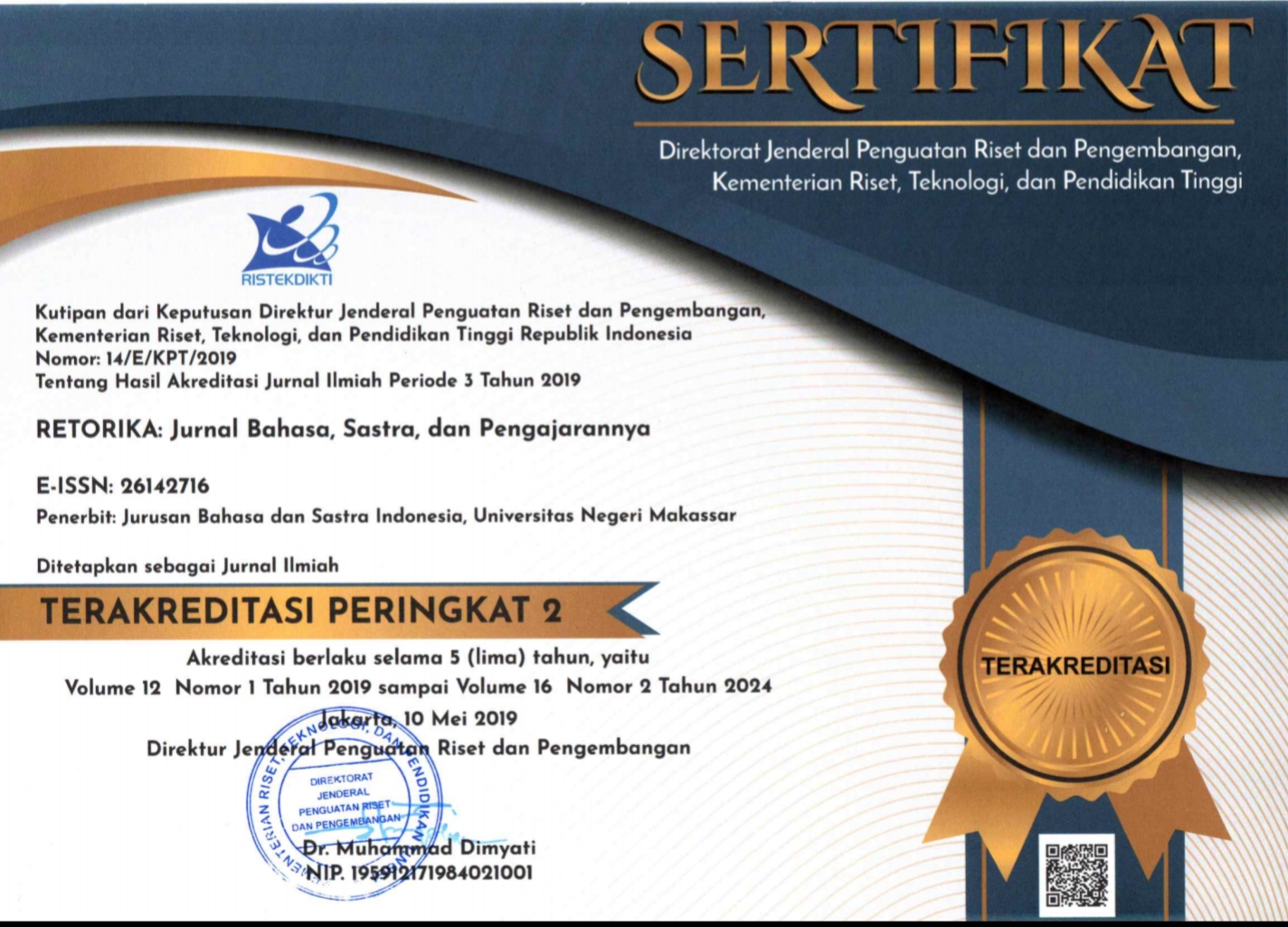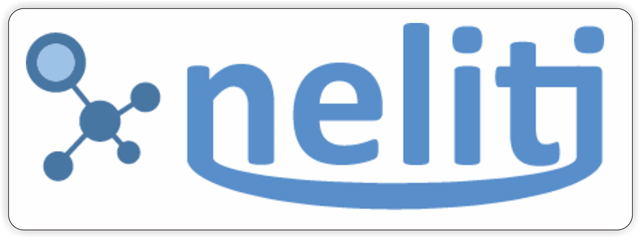SELF-ASSESSMENT AND PEER-ASSESSMENT FOR STUDENTS’ ESSAY ASSESSMENT IN THE AUFSATZ II COURSE
(1) Universitas Negeri Malang
(2) Universitas Negeri Malang
(*) Corresponding Author
DOI: https://doi.org/10.26858/retorika.v14i1.14523
Abstract
Self-assessment and peer assessment is an essential alternative assessment in this 5.0 era and in this pandemic time. Thus, this study objectives are to examine differences between self-assessment and peer assessment, as well as to describe students' perceptions of the application of self-assessment and peer assessment in the Aufsatz II course. This study uses a correlational research design. From the results of the study, it is known that the self-assessment and peer assessment of Aufsatz's writing ability has some differences in the aspects of content and coherence, while self assessement and peer assessments for the aspects of vocabulary, orthography, and grammar have no significant differences. Students still find some difficulties in making self-assessment and peer assessments, and they prefer teacher assessments to self-assessment and peer assessments.
Keywords
Full Text:
PDFReferences
Alfaki, Ibrahim Mohamed. 2015. “University Students’ English Writing Problems: Diagnosis and Remedy.” International Journal of English Language Teaching 3 (3): 40–52.
Betella, Alberto, and F. M. J. P Verschure. 2016. “The Affective Slider: A Digital Self-Assessment Scale for the Measurement of Human Emotions.” PloS ONE 11 (2): 1–11.
Ernani. 2012. “Implementasi Assessment Untuk Meningkatkan Hasil Belajar Siswa Pada Mata Pelajaran Akidah Akhlak Kelas XI Madrasah Aliyah Muhammadiyah 1 Medan.” Program Pascasarjana. Intitut Agama Islam Negeri Sumatera Utara. Medan.
Falchikov, Nancy. 2001. Learning Together: Peer Tutoring in Higher Education. London: Psychology Press.
Javed, Muhammad, Wu Xiao Juan, and Saima Nazli. 2013. “A Study of Students’ Assessment in Writing Skills of the English Language.” International Journal of Instruction 6 (2): 130–44.
Köster, Inggrid. 2013. Zertifikat B1 Deutschprüfung Für Jugendliche Und Erwachsene: Modellsatz Erwachsene. München: Goethe-Institut e. V.
Marhaeni, Anak Agung Istri Ngurah. 2013. “Pengaruh Evaluasi Diri Terhadap Kemampuan Menulis Bahasa Inggris.” Universitas Pendidikan Ganesha.
Nirwana, Ratih Rizqi. 2013. “Peer And Self Assessment Sebagai Penilaian Autentik Dalam Kurikulum 2013.” Semarang: Jurusan Tadris Kimia Fakultas Tarbiyah IAIN Walisongo.
Panadero, Ernesto. 2016. “Is It Safe? Social, Interpersonal and Human Effects of Peer-Assessment: A Review and Future Directions.” In G. T. L. Brown & L. R Harris Educations, 247–66.
Raaijimakers, S. F., Martine Baars, Fred Paas, and J. J. G. Van Merrienboer. 2019. “Effects of Self-Assessment Feedback on Self-Assessment and Task-Selection Accuracy.” Metacognition and Learning 14: 21–42.
Rochmiyati. 2013. “Model Peer Assessment Pada Pembelajaran Kolaboratif Elaborasi IPS Terpadu Di Sekolah Menengah Pertama.” Jurnal Penelitian Dan Evaluasi Pendidikan 17 (2): 333–45.
Rotsaert, Tijs, Ernesto Panadero, and Tammy Schellens. 2017. “Anonymity as an Instructional Scaffold in Peer-Assessment: Its Effects on Peer Feedback Quality and Evaluation in Students’ Perceptions about Peer Assessment Skills.” Eur J. Psychol Education 33: 75–99.
Sriyati, Siti, Nuryani Rustaman, and Asmawi Zainul. 2016. “Efektivitas Peer Assessment Dalam Menilai Kemampuan Kinerja Siswa Pada Kegiatan Praktikum Biologi.” Proceeding Biology Education Conference 13 (1): 372–73.
Wahyuni, Sri, and Abd. Syukur Ibrahim. 2012. Assessment Pembelajaran Bahasa. Bandung: PT Refika Aditama.
Willey, Keith, and Anne Gardner. 2010. “Investigating The Capacity of Self and Peer Assessment Activities to Engage Students and Promote Learning.” Faculty of Engineering and IT, University of Technology.
Windarsih, Chandra Asri. 2016. “Aplikasi Teori Umpan Balik (Feedback) Dalam Pembelajaran Motorik Pada Anak Usia Dini.” Jurnal Program Studi Pendidikan Guru PAUD STKIP Siliwangi Bandung 2 (1): 20–29.
Yan, Zi, and T. L. B. Brown. 2017. “A Cyclical Self-Assessment Process: Towards a Model of How Students Engage in Self-Assessment.” Assessment & Evaluation in Higher Education 42 (8): 1247–62.
Zhang, Fuhui, Christian Schunn, Wentao Li, and Miyin Long. 2020. “Changes in the Rerliability and Validity of Peer Assessment Acrpss the College Years.” Assessment & Evaluation in Higher Education, DOI: 10.1080/02602938.2020.1724260, .
Article Metrics
Abstract view : 670 times | PDF view : 117 timesRefbacks
- There are currently no refbacks.
Copyright (c) 2021 Primardiana Hermilia Wijayati, Tamara Carolin Fitrisia

This work is licensed under a Creative Commons Attribution-NonCommercial 4.0 International License.
Published by:
Department of Indonesian Language, Faculty of Languages and Literature, Universitas Negeri Makassar in cooperate with Asosiasi Dosen Bahasa dan Sastra Indonesia (ADOBSI) and Ikatan Program Studi Pendidikan Bahasa dan Sastra Indonesia (IKAPROBSI).
Address: Department of Indonesian Language Office, DG Building Second Floor, UNM Parangtambung, Daeng Tata Raya Street, Makassar, South Sulawesi, Indonesia
 Email: retorika@unm.ac.id
Email: retorika@unm.ac.id

RETORIKA: Jurnal Bahasa, Sastra,dan Pengajarannya is licensed under a Creative Commons Attribution-NonCommercial 4.0 International License.
















